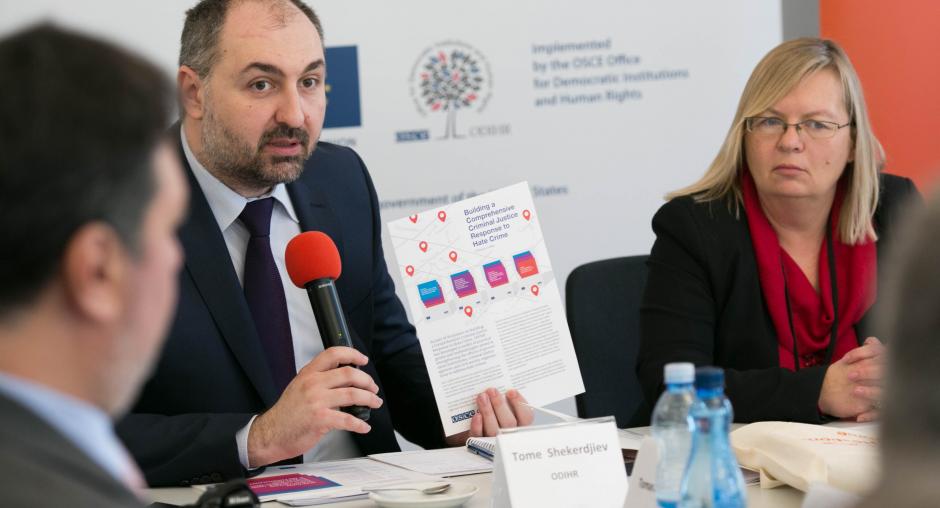ODIHR promotes innovative research methods to study unreported hate crimes

Innovative methods for researching unreported hate crimes and hate incidents were the focus of a training session for criminal justice and human rights professionals organized by the OSCE Office for Democratic Institutions and Human Rights (ODIHR) on 20 and 21 March 2019 in Warsaw.
The event, co-organized by the Office of the Commissioner for Human Rights of Poland, was a follow–up to the ODIHR project “Building a Comprehensive Criminal Justice Response to Hate Crime”.
“The survey on the nature and scale of unreported hate crimes against members of selected communities that we piloted last year in Poland has demonstrated significant discrepancies between the number of hate crimes included in the official data and the situation on the ground,” said Katarzyna Gardapkhadze, ODIHR First Deputy Director. “We have prepared a detailed survey methodology, allowing for its replication in other OSCE participating States. At this training session, we will demonstrate and promote the use of this newly developed tool.”
During the training session, experts involved in conducting the original research presented a step-by-step guide on how to design, finance and implement a victimization survey using the respondent-driven sampling technique. The technique relies on respondents’ self-recruitment and allows users to research communities that are hard to reach with traditional sociological survey methods.
“Employing this methodology for researching hate crimes against Muslims, Sub-Saharan Africans and Ukrainians in Poland produced information and evidence that we would not have been able to gather otherwise,” said Hanna Machińska, Poland’s Deputy Commissioner for Human Rights. “Thanks to the survey, we not only know the scale of underreporting in Poland, but we have also learned about the reasons victims hesitate to report incidents and how they struggle with the consequences of hate crimes.”
The methodology of mapping unreported hate crimes using respondent-driven sampling is part of ODIHR’s recently launched toolkit on addressing hate crimes. The toolkit includes training packages, methodologies and guidelines on how public institutions and civil society can address hate crimes based on the project experience in Bulgaria, Greece, Italy and Poland.